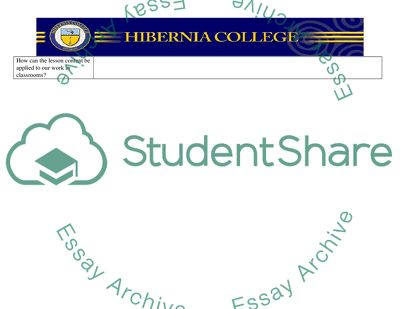Cite this document
(History of Education Assignment Example | Topics and Well Written Essays - 1750 words, n.d.)
History of Education Assignment Example | Topics and Well Written Essays - 1750 words. Retrieved from https://studentshare.org/education/1565684-reflective-learning-log-for-history-of-education
History of Education Assignment Example | Topics and Well Written Essays - 1750 words. Retrieved from https://studentshare.org/education/1565684-reflective-learning-log-for-history-of-education
(History of Education Assignment Example | Topics and Well Written Essays - 1750 Words)
History of Education Assignment Example | Topics and Well Written Essays - 1750 Words. https://studentshare.org/education/1565684-reflective-learning-log-for-history-of-education.
History of Education Assignment Example | Topics and Well Written Essays - 1750 Words. https://studentshare.org/education/1565684-reflective-learning-log-for-history-of-education.
“History of Education Assignment Example | Topics and Well Written Essays - 1750 Words”. https://studentshare.org/education/1565684-reflective-learning-log-for-history-of-education.


